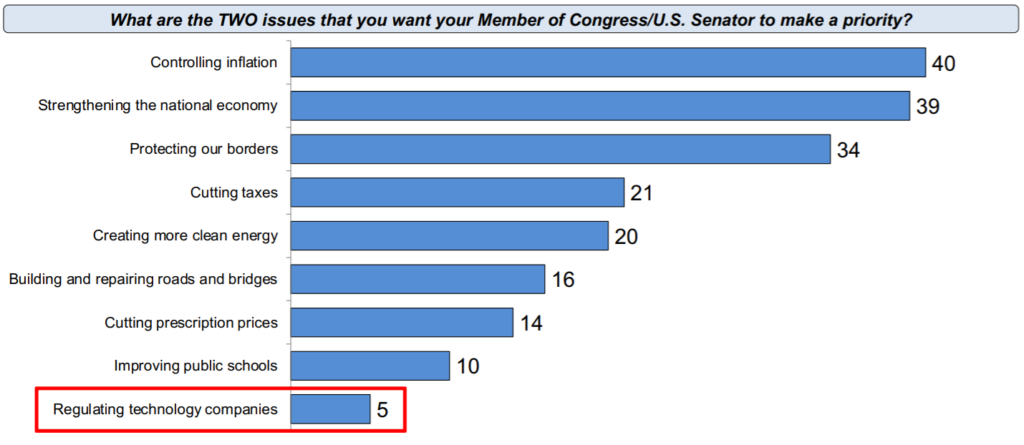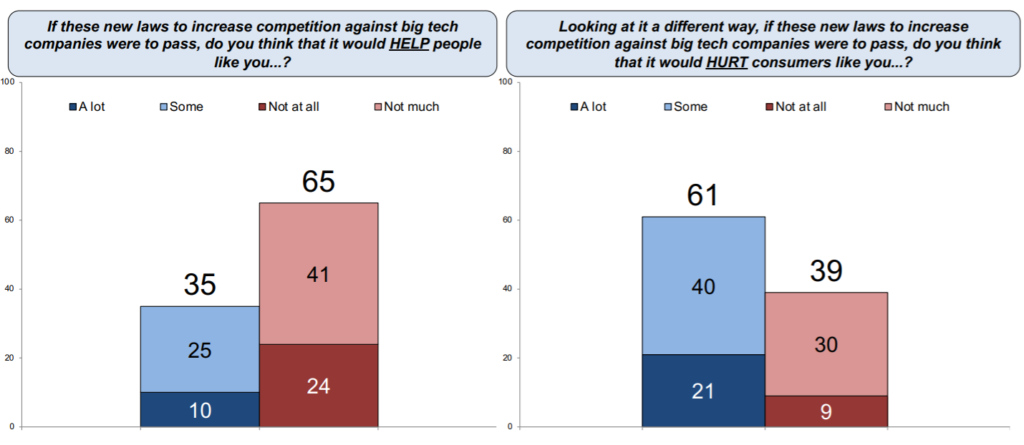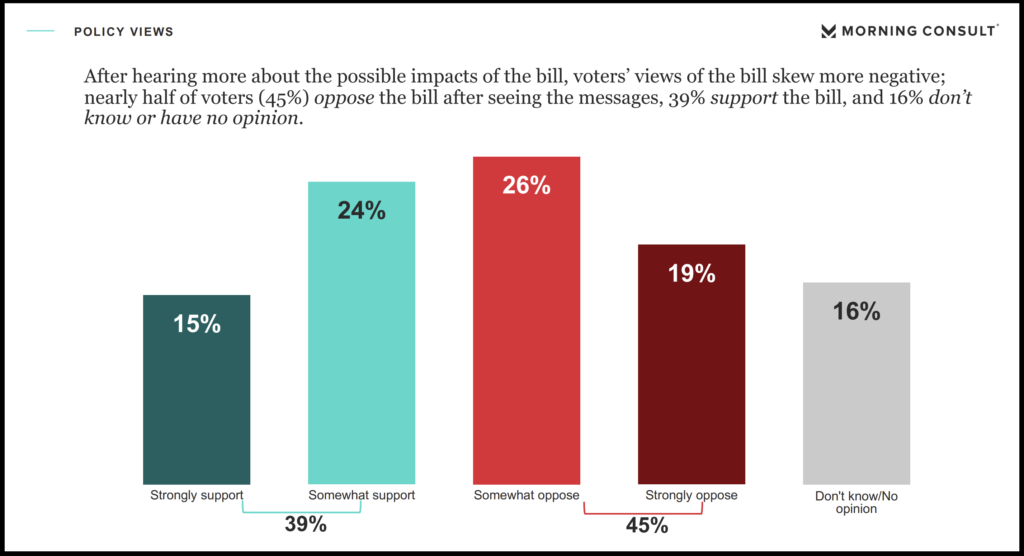Usually when someone talks about breaking the Internet, it’s because Cardi B just posted some fresh content. Not this time. Right now, a handful of lawmakers are trying to push through a package of extreme tech regulations that would, very seriously, break the internet as we know it.
In the House of Representatives, the package includes H.R. 3825, H.R. 3816, and H.R. 3460, introduced by Reps. Pramila Jayapal and David Cicilline. In the Senate, Sens. Amy Klobuchar and Chuck Grassley have taken the lead on companion legislation, S. 2992. Together, the bills would damage some of the most popular apps and products online.
Bills would ban, break, or degrade Amazon Prime, Facetime, Amazon Basics, and Google Maps in Search
Here’s a look at a few of the places consumers would see the biggest changes online:
Amazon Prime free shipping
By requiring equal treatment of all products and marketplace sellers, the bills would make it impossible for Amazon to offer its Prime free shipping service for certain products. A closer look at S. 2992’s impact on Amazon Prime is available here.
Google Maps appearing in Google search results
The bills would prohibit Google from showing its maps in main search results when you search for a local business.
Facebook and Instagram cross-posting
The bills would make it impossible for Facebook to show your friends’ Instagram stories at the top of the news feed — and ban users’ one-touch cross-posting between Facebook and Instagram.
Apple’s App Store recommending the best apps
Because the bills ban platforms from discriminating among services that use its platform, Apple’s App Store could no longer recommend the best apps.
For a more on how the Cicilline and Jayapal bills would impact consumers, check out this list. For info on what Klobuchar’s bill in the Senate would mean for online consumers, give our blog post a read.
Public opposition
Recent polling from Normington Petts finds that tech regulations aren’t a priority for most voters, and that voters are deeply concerned about the harm that proposed tech regulations could do.
When asked to list their top legislative priorities, Democrats most frequently chose clean energy and the environment while Independents and Republicans pointed to inflation. Voters from every party ranked regulation of technology companies last among their priorities.

When pressed on what their tech policy priorities might be, voters cited cybersecurity, data privacy, and online content moderation as top concerns. New laws to stop anti-competitive practices ranked last among voters’ tech priorities.
The Normington Petts poll also presented voters with balanced arguments for and against tech competition legislation modeled after the arguments made by proponents and opponents of S. 2992.
After hearing both sides of the debate, consumers were concerned both that tech legislation would not help them, and that proposed regulations would end up hurting consumers like them. In fact, a full 61 percent of voters raised concerns that new laws to increase competition in tech would hurt consumers like them.

While the findings of the Normington Petts poll paint a clear picture of voter sentiment on tech, the results of the poll are not isolated.
Last year, Morning Consult found that while voters generally support regulation of tech services, they ranked the issue behind other priority areas for Congress. And after they learned more about proposals to ban certain tech conveniences, like those from Rep. Cicilline and Sen. Klobuchar , voters in the survey opposed that idea 45% to 39%.

What they’re saying
The Cicilline, Jayapal, and Klobuchar bills would break popular consumer products and do real damage to the online economy. But you don’t have to take it from us. Here’s what leading voices in Washington are saying.
Majority Leader Steny Hoyer (D-MD)
Congressman Steny Hoyer built his reputation on standing up for moderate Democrats in purple districts. When lawmakers on the far-left tried to rush through radical anti-tech legislation, Hoyer who nixed the vote. In a critique of the antitrust bills, Hoyer remarked that future competition legislation should be “constructive, not destructive.” Here’s more on Hoyer’s opposition.
Issie Lapowsky, Protocol
No one knows the internet better than the journalists over at Protocol, a new media company covering the people, products, power, and politics of the tech industry. If you want a run down of how the antitrust bills would impact consumer products online, there’s no better place to turn than Issie Lapowsky’s coverage. Here’s what she has to say:
“Major parts of the internet would indeed blow up if these laws are enacted… That’s precisely why these bills aren’t likely to become law.”
Congresswoman Zoe Lofgren (D-CA)
Maybe you know her as one of Congress’s leading champions for DREAMers, or maybe you know her from her work to protect digital privacy for consumers online. When it comes to the antitrust tech bills in the House, Congresswoman Zoe Lofgren has raised some serious red flags. Here’s what she had to say:
“This is a very extreme measure… [The bill] would take a grenade and just roll it into the tech economy and blow it up.”
Leah Nylen, Politico
If you want to learn more about the antitrust legislation before the House, perhaps the most trusted reporter to turn to is Leah Nylen, who has covered antitrust issues as a journalist for more than a decade. In her recent coverage of the House antitrust bills, Nylen has this to say:
“The [bills] could bring big changes to some of the industry’s best-known products, from Amazon Prime and Google’s search results to Apple’s App Store and Facebook’s Messenger and Instagram. LinkedIn and Microsoft Office could even feel the bite.”